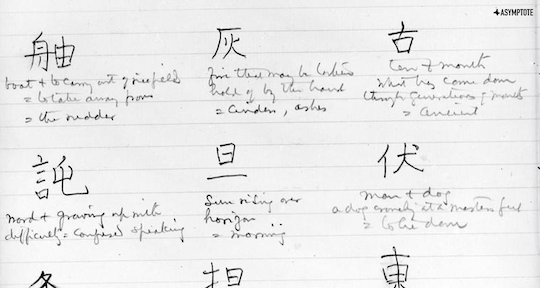In Antena’s “Manifesto for Ultratranslation,” it is stated: “The politics of translation make us ultraskeptical and ultracommitted.” As such, the discourse and dialectics surrounding this artform are in an ever-evolving state of being challenged, argued, and explained. In the following conversation, Blog Editor Xiao Yue Shan discusses her work in editing Chinese language translations with fellow translator Zuo Fei, touching on their separate values, priorities, and approaches.
Xiao Yue Shan: Translation is an intensely personal experience—perhaps the most transparent reflection of what occurs when idea is transmuted through the individual mind’s various channels. This is why we, as translators, are continually struck by our work’s mutating forms, its evolving methods, and continue to conversate with such intensity about our own logic; when one speaks of translation, one speaks of a way of seeing the world. When we were editing translations together, you wrote me a letter in response to some edits I sent on a final draft of some poems; in it, you stated that you believe in literal translation, in seeming opposition to my approach of preserving the ineffable by creating anew.
It’s interesting because we are both poets, and I’ve always assumed—presumptuously—that poets are all apart of the same passionate investigation, in which consciousness touches something and brings it to life, shaped in a precise and resolved concentration of words. In translation, there is no transposition of this consciousness, which is a singular encounter between the poet, their knowledge, and all that it reaches and contacts. So, the translator must take the place of the poet, and—with intelligence but without egoism—give the original poem something it can live with.
Essentially, there is a distinction between a poem’s components and its poetics. It seems to be a corrupt exchange should a text be translated word-for-word, when one acknowledges the multiple roles that words play in literature; they do not simply transmit meaning, but also voice, history, and music. Could you tell me why you work from a more literal approach?
Zuo Fei: I prefer literal translation to free translation simply because, in the time of science and technology, people believe translators should strictly follow the original text. By literal translation, I don’t mean word-for-word, which does not work for poetry in many cases; my intention is that we should adhere to the original work as much as we can, and put it into a target language according to our desires. That is to say, if translation is an impossible job, we try to increase the odds of it being possible. READ MORE…

